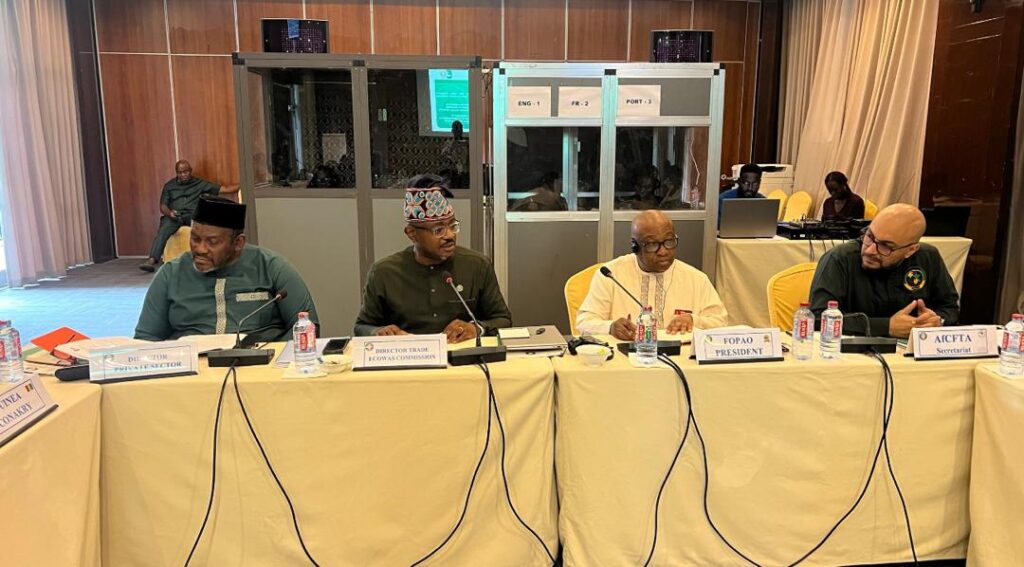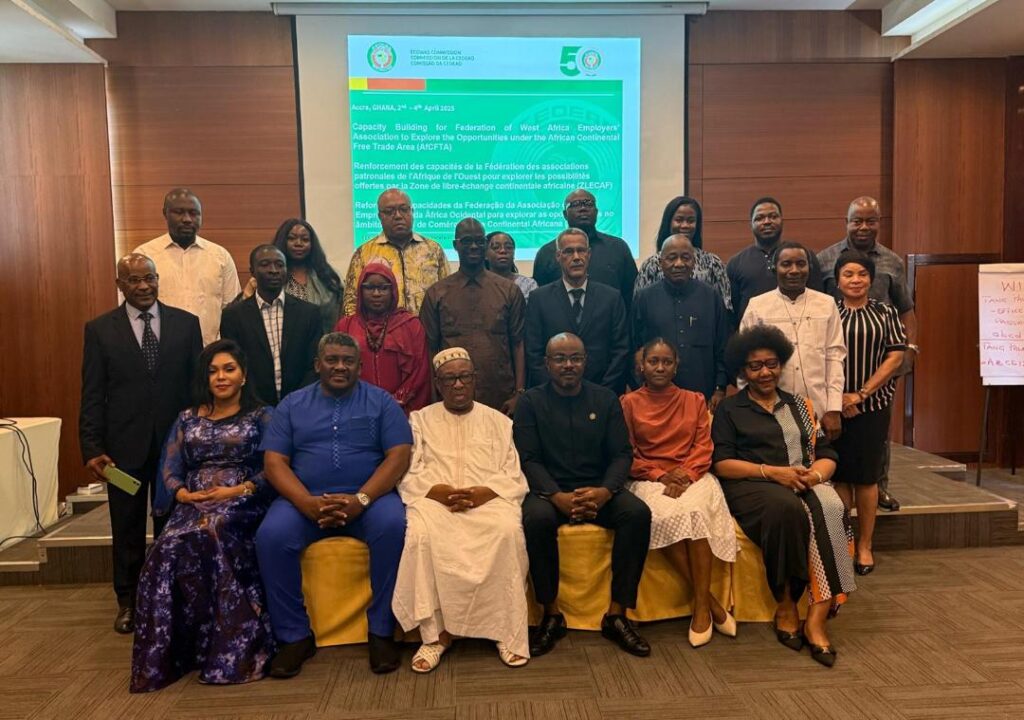ECOWAS Equips West African Private Sector for AfCFTA, Hold High-Level Workshop in Accra.
By Raymond Enoch
In a bold step toward accelerating regional economic integration and empowering businesses to seize continental trade opportunities, the Economic Community of West African States (ECOWAS) Commission conducted a high-impact, three-day capacity-building workshop titled “Exploring the Opportunities under the AfCFTA.”

The workshop held from April 2nd to April 4th, 2025, in Accra, Ghana, brought together influential private sector leaders, trade experts, and policy influencers from across West Africa.
The initiative, organized by the ECOWAS Directorates of Trade and Private Sector in partnership with the Federation of West Africa Employers’ Organizations (FOPAO), is part of a strategic drive to ensure West African businesses are well-prepared to harness the transformative potential of the African Continental Free Trade Area (AfCFTA).

Delivering a keynote address on behalf of Mrs. Massandjé TOURE-LITSE, ECOWAS Commissioner for Economic Affairs and Agriculture, Mr. Kolawole SOFOLA, ECOWAS Director of Trade, reaffirmed the Commission’s unwavering commitment to building an integrated, prosperous, and self-reliant West Africa. “As ECOWAS celebrates 50 years of fostering economic unity, we are reminded that the private sector is the engine of growth—and their readiness for AfCFTA will shape the region’s future,” he stated.
FOPAO Executive Secretary, Mr. Ousseine DIALLO, hailed ECOWAS’s initiative and charged participants to translate insights gained into actionable steps in their countries. “This workshop is more than information-sharing; it is about empowering our people to lead the charge in implementing the AfCFTA on the ground,” he noted.
Representing H.E. Wamkele MENE, Secretary General of the AfCFTA Secretariat, Mr. Mohammed ALI, Director of Trade in Goods and Competition, highlighted the Agreement’s core objectives—establishing a single continental market, enhancing competitiveness, and catalyzing economic transformation across Africa. He emphasized that Regional Economic Communities like ECOWAS are not just participants, but foundational to the success of AfCFTA.
Participants received detailed presentations on AfCFTA’s operational frameworks, its protocols, and the ECOWAS Implementation Strategy designed to align national efforts with continental goals.
Adding to the intellectual rigor of the workshop, Professor Nazifi Abdullahi Darma applauded Professor Adeola Adenikinju’s efforts in repositioning the Nigerian Economic Summit (NES), pledging further support to enhance its influence on economic policy development in Nigeria.
As the dust settles in Accra, the message is clear: West Africa is gearing up to lead, not follow, in the unfolding AfCFTA era—driven by an informed, engaged, and empowered private sector.








